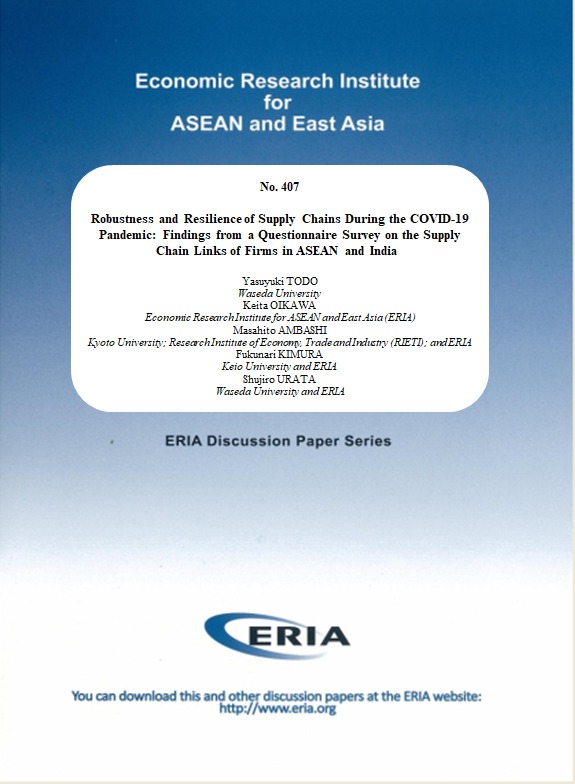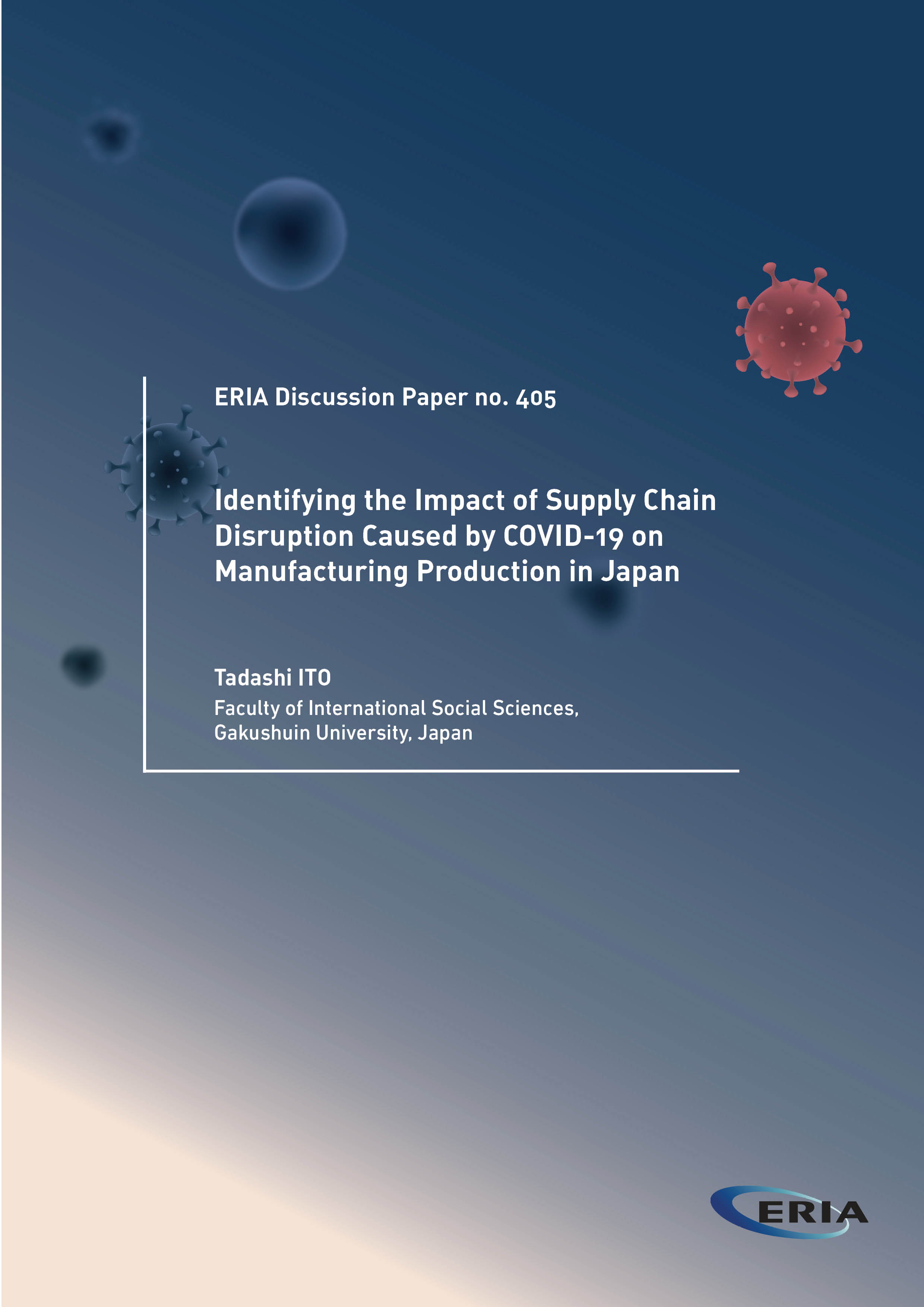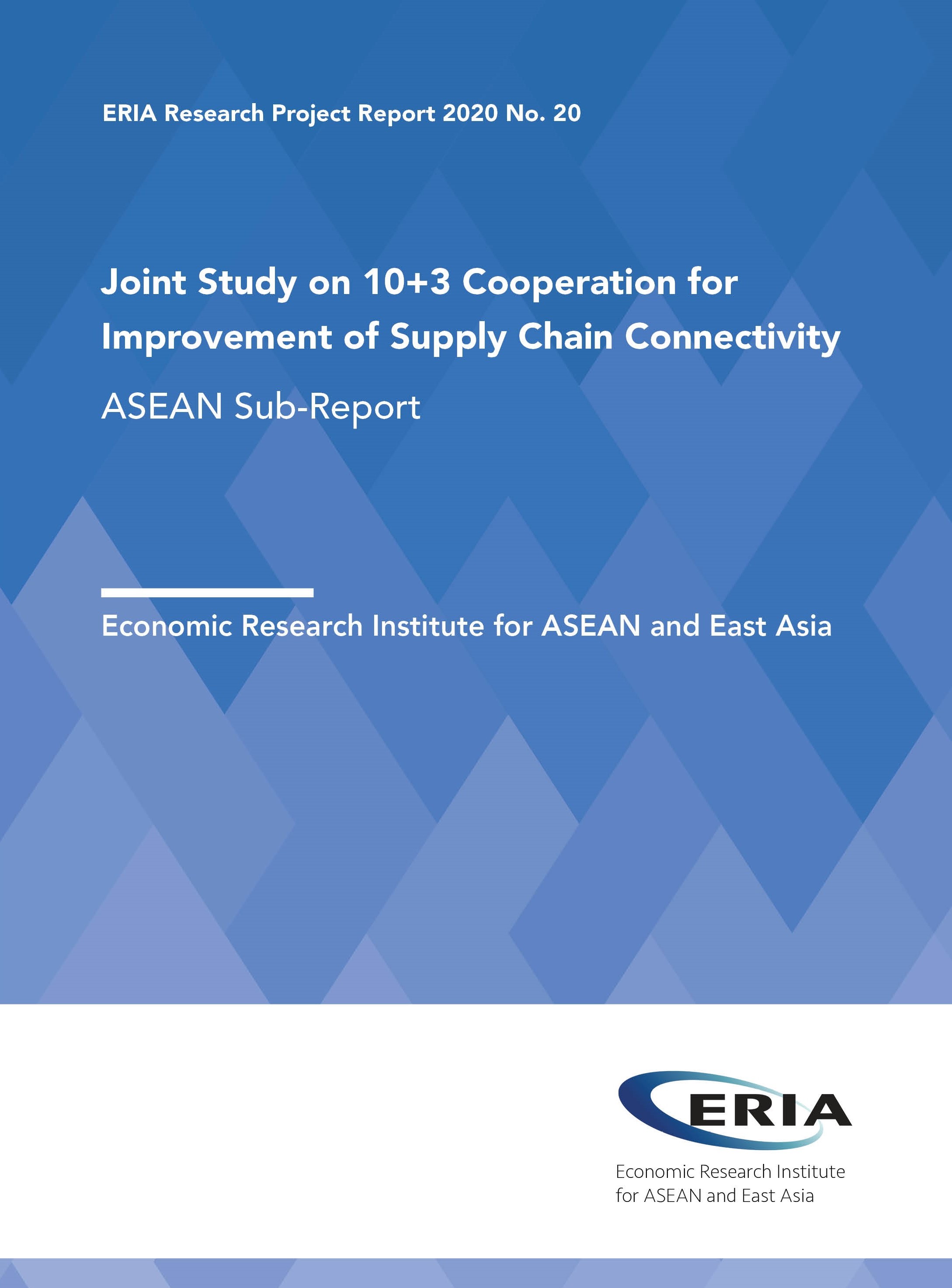Robustness and Resilience of Supply Chains During the COVID-19 Pandemic: Findings from a Questionnaire Survey on the Supply Chain Links of Firms in ASEAN and India

Print Article:
Using a unique firm-level data set from the Association of Southeast Asian Nations (ASEAN) and India collected from November 2020 to February 2021, this paper examines how the robustness and resilience of supply chain links – i.e. maintaining links and substituting another for a disrupted partner, respectively – were determined when firms faced economic shocks due to the spread of the coronavirus disease (COVID-19). Focusing on the role of the characteristics of firms’ supply chains, we find that homophily, i.e. the tendency to form a group with similar agents, was often associated with the robustness of supply chain links, most likely because of the strength of homophilous ties. In particular, when a foreign-owned firm had a supply chain link with a firm located in the same country as its home country, the link was quite robust. We also find that the geographic diversity of customers and suppliers creates resilience of supply chains. When the demand or supply from a partner of a firm was disrupted because of COVID-19, the firm likely mitigated the damage from the disruption through substitution of partners if its supply chains were well diversified across countries. In addition, larger or younger firms tended to be resilient and robust. The robustness and resilience of supply chains are found to have led to higher performance.




